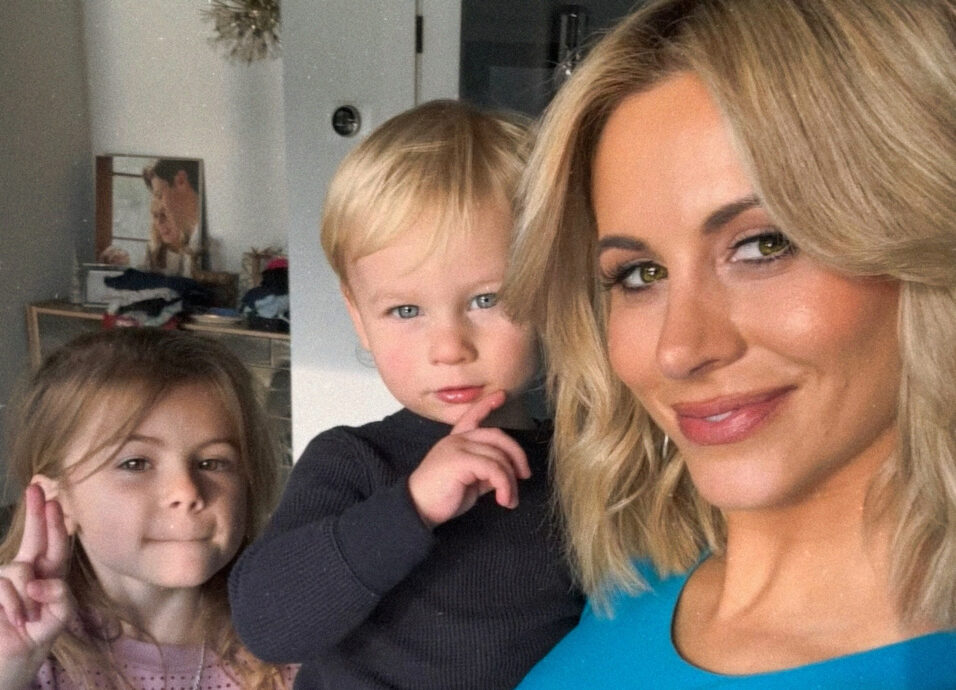“I don’t want a hug,” my son said to my daughter. She dropped her arms and gave me a sad puppy look. “What’s wrong with a hug?” I asked, jumping in. He shook his head and I read the thought bubble above his head. Cooties. Oh. We’re in that phase now. “OK, come on,” I said to my daughter. “I want one.” As I held her, I watched my son leave the room, and I felt annoyed. Would it have killed him to give her a hug?
You have more sway than you might think in sibling relationships. What we do and what we say in the presence of our children matters. Here are 5 ways to raise kids who like each other.
1. Don’t have a favorite.
As I tucked my son into bed one night, he grinned and said, “Who’s your favorite?” I gave him a kiss and told him I didn’t have a favorite. Even if his sister was in the doghouse, I didn’t want to joke about it. Kids talk and hurt feelings tend to follow. Even if you feel closer to one of them, if you want your kids to have a strong sibling relationship, keep the “f” word out of your conversations.
2. Keep things fair.
“Why does she get extra time on the computer?” my son asked. I bit my lip, looking at the clock. Oops. Shawn Whiteman, PhD says, “Children are keen observers of how they are treated differently from their brothers or sisters” and this impacts sibling relationships. They want things to be fair. But sometimes children do need to be treated differently. For example, an older child might get to stay up later than a younger one. Explain to the younger one the reason so it doesn’t look like favoritism. Keeping things fair between your kids has a direct impact on their relationship.
3. Don’t compare one to the other.
Have you ever said, “Your brother tried every food on his plate. Why haven’t you?” Or something similar? I know I have. But now that I’m more aware of how harmful these statements are, I’m more careful. Comparing siblings sets them against each other and isn’t a good idea if you want them to get along. Take the long view here by not pointing out who does what better. The odds will be in your favor for a strong, lasting sibling relationship.
4. Avoid setting them up for competition.
It’s convenient to take both kids to piano lessons because one goes right after the other. But the convenience could come at a cost. Often, the older child picks up skills faster. To avoid a competitive sibling relationship, enroll them in different classes once they’re old enough to have their own interests. A lot of times, it’s more work for you, but if it’s possible, do it so their relationship can land on more equal footing.
5. Try not to take sides when siblings argue.
“She smiled at me in a mean way,” my son said. “No, I didn’t,” my daughter replied. Whether or not my daughter gloated about arriving first at the door, I decided to ask the kids to give each other grace and move on. Not taking sides can be really hard to do, especially if one child seems to be the constant source of conflict. But handling these issues privately with that child might work better for their sibling relationship. Some kids just need more coaching with conflict resolution. But try not to assign blame right away or assume one child is at fault. Your response to their arguments can play a big role in how they treat each other going forward.
arriving first at the door, I decided to ask the kids to give each other grace and move on. Not taking sides can be really hard to do, especially if one child seems to be the constant source of conflict. But handling these issues privately with that child might work better for their sibling relationship. Some kids just need more coaching with conflict resolution. But try not to assign blame right away or assume one child is at fault. Your response to their arguments can play a big role in how they treat each other going forward.
Warm sibling relationships can ward off loneliness and depression as children grow. How have you helped your kids improve their friendship?
We want our kids to not just like each other, but love each other as well. Check out our Sibling Love Conversation Starters to get the kids talking and thinking about their relationship!








